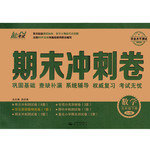题目内容
— Well, I found this. I think it must be yours.
— My watch! Thank you. Where ___________ it?
A. do you find B. have you found C. did you find D. were you finding
C

 能考试期末冲刺卷系列答案
能考试期末冲刺卷系列答案At the American airport, I was looking for a public telephone to tell my friend Danny that I had arrived. An American asked if he could help me. "Yes," I said, '1 want to give my friend a ring."
"Well, that's nice. Are you getting married?" he asked. "No," I replied, "I just want to tell him I have arrived." "Oh," he said, "there is a phone downstairs on the first floor." "But we're on the first floor now," I said.
"Well, I don't know what you are talking about Maybe you aren't feeling too well after your journey," he said. "Just go and wash up, and you will feel a lot better." And he went off, leaving me wondering where on earth I was: At home we wash up after a meal to get the cups and plates clean. How can I wash up at an airport?
At last we did meet. Danny explained the misunderstanding: Americans say "to give someone a call", but we English say "to give somebody a ring". When we say "to wash your hands", they say "to wash up". And Englishmen start numbering from the ground floor so the first floor is the second for Americans.
【小题1】The writer went to America by ______.
| A.plane | B.ship | C.bus | D.train |
| A.education | B.business | C.holiday | D.friendship |
| A.phone call | B.present | C.person | D.letter |
| A.after dinner | B.after a journey |
| C.when they are tired | D.before they telephone someone |
| A.first | B.second | C.third | D.Fourth |
| A. That’s very kind of you. B. And I forgot where I had put it. C. You really should read it. D. They are all out. E. I’m afraid I haven’t. F. I haven’t had it with me now. G. Well, I have a copy of my own. |
B: ___1_____.
A: What a pity! It’s a wonderful book, you know.
B: Well, I’ve been wanting to read it for a long time, but I can’t get a copy. The library has only three copies. ______2____
A:___3____ If you like , I’ll lend it to you.
B: Thank you. ____4___ By the way, when can I get it?
A: ___5____will you please come to house after school?
B:OK. I’ll go as soon as school is over.
--- You must be very excited about going to New York for further study.
--- _________,but I am afraid I won’t do well because my English is poor.
| A.I’m sorry | B.Certainly not |
| C.I don’t know yet | D.Well, I ought to be |
|
Dear editor, My English teacher is very strict (严厉)with us. Several days ago, when we were having class, Tom asked me a question. But she thought we were speaking in class. She asked us to stand at the back of the classroom for a few minutes. This made me uncomfortable. After that, I feel nervous in her class, so I don’t like her class. However, I really want to learn English well. What should I do? Yours, Mike |
|
Dear Mike, I am sorry you are having difficulty with your English class. Every teacher wants his or her students to study hard especially in class. So I think you should have a talk with your English teacher and tell her what you were doing with Tom that day. If she knows your worries, maybe she will help you with your English. And she will be pleased to hear you want to learn English well. I believe when students are not trying as hard as they can, a teacher is forced(被迫)to take actions. Yours, Editor |
1.What’s wrong with Mike?
|
A.He meets trouble with his parents. |
|
B.He doesn’t know how to get on well with his classmates. |
|
C.He has a hard time with his English class. |
|
D.He is always speaking in class. |
2.What happened in that English class?
|
A.Mike couldn’t answer the question. So the teacher asked him to stand. |
|
B.Mike had an argument with Tom about the question. |
|
C.Tom asked Mike a question, and the teacher thought they were speaking. |
|
D.Mike felt uncomfortable because he was ill. |
3.In the editor’s opinion, why did the English teacher punish(惩罚) Mike?
|
A.Because the English teacher didn’t think Mike was studying hard in class. |
|
B.Because Mike answered the question wrong. |
|
C.Because Mike was bad at English. |
|
D.Because Mike had a fight with other students. |
4.What does the underlined phrase“ take actions” mean in Chinese?
|
A.采取行动 |
B.参加活动 |
C.帮助 |
D.表演 |
5.What can we learn from the letters?
|
A.Mike wants to have a talk with his English teacher. |
|
B.Mike wants the editor to say something to his English teacher. |
|
C.The editor gave Mike some advice, but it didn’t work. |
|
D.Mike dislikes English classes now, but he wants to learn English well. |